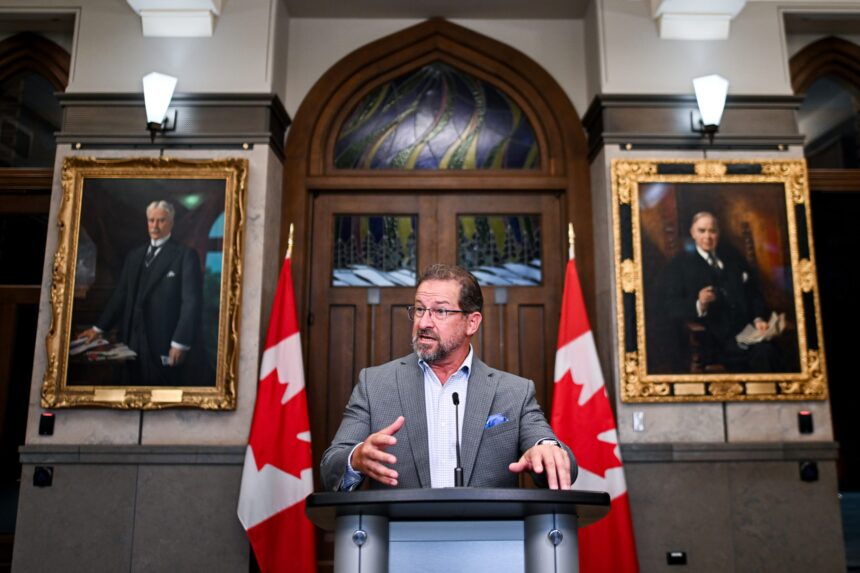In a scathing critique that has reverberated through Ottawa’s political corridors, Bloc Québécois leader Yves-François Blanchet accused Finance Minister Mark Carney of making significant trade concessions to the United States without securing meaningful benefits for Canada. The remarks came during a heated parliamentary exchange that highlighted growing tensions over Canada’s trade relationship with its southern neighbor.
“The minister has repeatedly surrendered Canadian interests to American demands while receiving nothing of value in return,” Blanchet declared during Question Period. “Quebec’s industries are paying the price for this government’s weakness at the negotiating table.”
Carney, who has been steering Canada’s economic policy since his appointment, defended the government’s approach, insisting that maintaining positive trade relations with the United States remains vital for Canadian prosperity. “We’re navigating complex negotiations with our largest trading partner during challenging global economic conditions,” Carney responded. “These discussions require strategic compromise to protect Canadian jobs and businesses in the long term.”
Economic analysts note that Canada’s trade relationship with the United States has grown increasingly complicated under the current administration. Data from Statistics Canada shows that bilateral trade exceeded $847 billion last year, with approximately 75% of Canadian exports destined for American markets. This economic interdependence has placed Canadian negotiators in a delicate position.
The dispute centers primarily on recent adjustments to cross-border trade policies affecting the automotive, lumber, and agricultural sectors. Quebec-based manufacturers have expressed particular concern about changes that appear to favor American producers while imposing additional regulatory burdens on Canadian companies.
Industry representatives from Quebec’s manufacturing association have echoed Blanchet’s concerns. “We’re seeing a pattern of concessions that disproportionately impacts Quebec’s industrial base,” said Marie Tremblay, executive director of the Quebec Manufacturing Coalition. “When the federal government yields on key trade provisions without securing reciprocal benefits, it’s our workers who suffer the consequences.”
The Bloc’s criticism extends beyond specific policy disagreements to question the fundamental approach of the current government’s economic diplomacy. Blanchet suggested that Carney’s banking background has predisposed him toward financial sector interests rather than protecting Canada’s industrial capacity.
“Perhaps the minister’s experience at the Bank of England and Goldman Sachs has taught him to prioritize financial markets over manufacturing jobs,” Blanchet remarked, referencing Carney’s previous positions before entering Canadian politics.
Trade experts suggest that the confrontation reflects broader tensions about Canada’s strategy in dealing with its dominant trading partner. “The government faces a genuine dilemma,” explained Dr. Richard Thompson, economics professor at the University of Toronto. “Standing firm risks retaliation from an essential market, while making concessions opens them to domestic criticism. Finding the right balance is extraordinarily difficult.”
This public clash comes at a particularly sensitive moment, as Canadian trade representatives prepare for another round of negotiations on outstanding issues including softwood lumber, dairy market access, and digital services taxation.
As Canada navigates these complex trade waters, the central question remains: can our negotiators secure a relationship with the United States that protects Canadian sovereignty while maintaining crucial economic ties, or are we destined to continue making concessions from a position of inherent weakness?

























